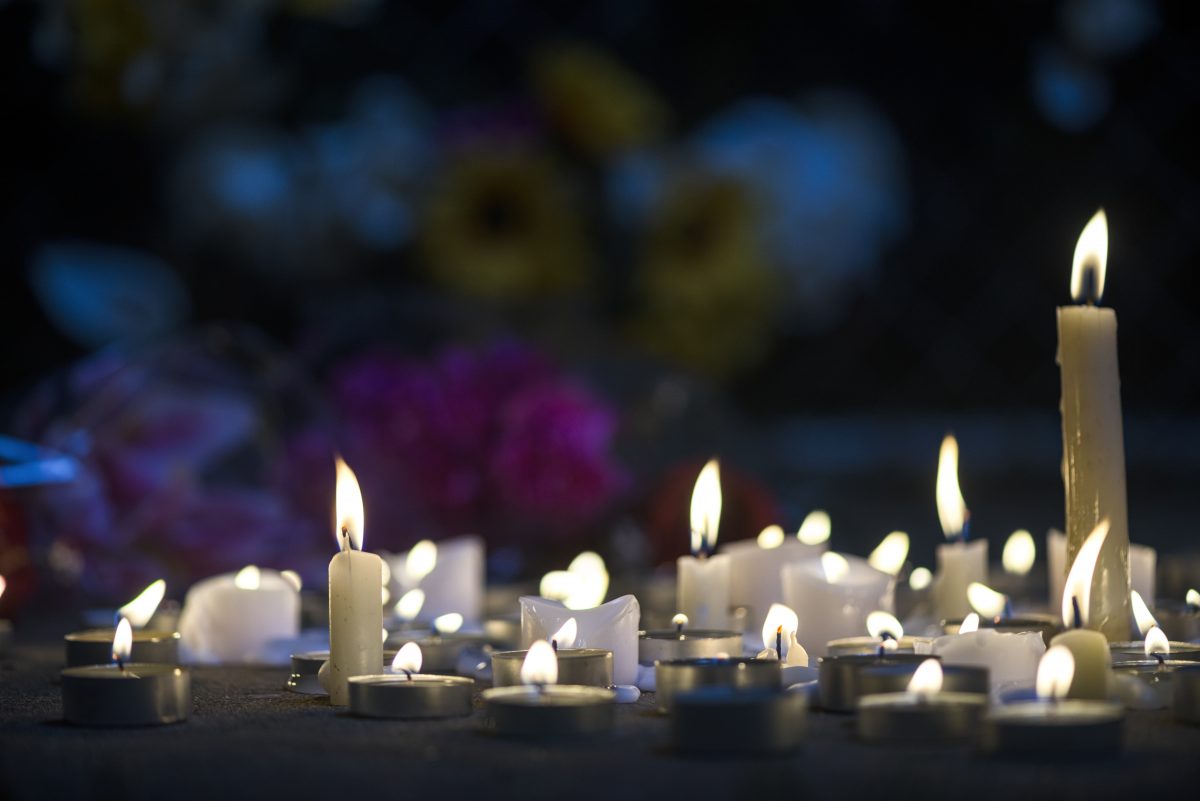When The Challenges Continue Beyond the News Cycle
The psychological impact of a mass shooting affects many people beyond the victims, survivors and their families such as law enforcement officers, first responders and hospital personnel.
New research from Florida Tech is finding that another, often overlooked group has also grappled with emotional fallout in the wake of these tragic incidents: the media.
Ted Petersen, associate professor in the School of Arts and Communication, conducted in-depth interviews of more than 40 members of the media involved in covering the two deadliest mass shootings in U.S. history: the Oct. 1, 2017, shooting in Las Vegas that killed 58 and injured more than 850; and the June, 12, 2016, Pulse Nightclub shooting in Orlando, Florida, that killed 49 and injured more than 50.
His findings were both troubling and encouraging: Journalism is a stressful occupation even in normal circumstances, much less extraordinary events such as these, and the mental health of journalists has not traditionally been a major focus of colleagues or newsroom supervisors. But those interviewed said the newsroom culture is slowly shifting to value and care for the mental health of journalists.
Speaking with reporters, editors, photographers, producers and on-air personnel from print, radio and television media outlets in Las Vegas and Central Florida who were involved in covering the shooting, Petersen and his team utilized an interview protocol that included open-ended questions about their careers as journalists, descriptions of their roles in covering the shooting, ethical dilemmas they faced, how they coped with stress and trauma, their usage of social media, triggers that reminded them of the incident, and newsroom and company support.
During the interviews, journalistic standards were analyzed, such as whether to air the sound of the gunshots or use the name of the shooter. Approaching victims was discussed, as was the delicate nature of wanting to talk with those affected while still recognizing the tragedy that had ensued.
The experiences and their effects varied.
Petersen asked a Central Florida television producer about mental health and seeking out any counseling since covering the Pulse shooting. While the producer didn’t feel she had any problems after the shooting, a month after the shooting a walk downtown near the former nightclub led to a significant moment.
“She was walking with her friends and heard police sirens, and she said, ‘Why are those sirens so loud?’ and her friends said to her, ‘There are no sirens going on,’” Petersen said.
One Las Vegas reporter arrived at the hotel shortly after the shooting expecting to find the area blocked off and a dedicated section for the media established, as is often the case. Instead, the subject was able to get inside the hotel where the shooter was based. While he was ultimately evacuated with the rest of the public, the reporter said the event was an intense situation that still affects him today, more than 18 months later.
“I can tell he’s still emotionally processing it, so he’s working his way through that,” Petersen said. “I think it’s questioned whether or not it’s the right way to do journalism.”
Several Las Vegas journalists told Petersen they coped with the shooting by drinking. One of the reporters said he was just coming back from a two-month leave of absence for mental health, taken after the shooting, when he realized he was an alcoholic.
After the shooting, the biggest newspaper in Las Vegas, the Las Vegas Review-Journal, sued the Las Vegas Metropolitan Police Department to compel the release of materials associated with the shooting. The department complied, and every Wednesday when the documents were released, the journalists Petersen spoke with said they experienced the shooting again through documents and body cam footage.
For some, the release of information proved therapeutic, as they were able to write about those who saved lives and the community’s response to the tragedy. For others, the stress of the traumatic event resurfaced, Petersen found.
Petersen found television stations owned by larger companies showed support for their employees after the Vegas shooting by bringing in psychologists and having RVs for journalists to sleep in. Similar resources were generally not provided to employees at the smaller radio station and newspaper company Petersen studied.
Employees also promoted addressing mental health, as a Central Florida newspaper editor informed the newsroom she goes to therapy, which led to one of the reporters to ask more about doing so.
Editors and upper management also had different ways of handling the event and how they covered it. Some seemed less affected by their choices, while others, like a Las Vegas newspaper night editor who sent the reporter into the hotel, were greatly affected.
That editor “cried in the conference room that we were in, so she really recognizes that she put the reporter in a spot that she wishes she hadn’t,” Petersen said. “She thinks she could have coached him better to not get in that situation. I mean, nobody knew, this is all with 20/20 hindsight; she thought she was sending him to go stand at the tape; she didn’t know she was sending him into danger.”
Through his research, Petersen hopes to help fuel a culture shift in newsrooms, with employees being encouraged to discuss their mental health and then offered the help they need.
“I think a little bit of that shift is going to make a huge difference,” Petersen said. “You have to mean it, and you have to do it without judging someone who is not OK, but I think that could go a long way towards addressing it, just not having it be taboo or a sign of weakness that you need to take a day off to stop thinking about an event.”
###





